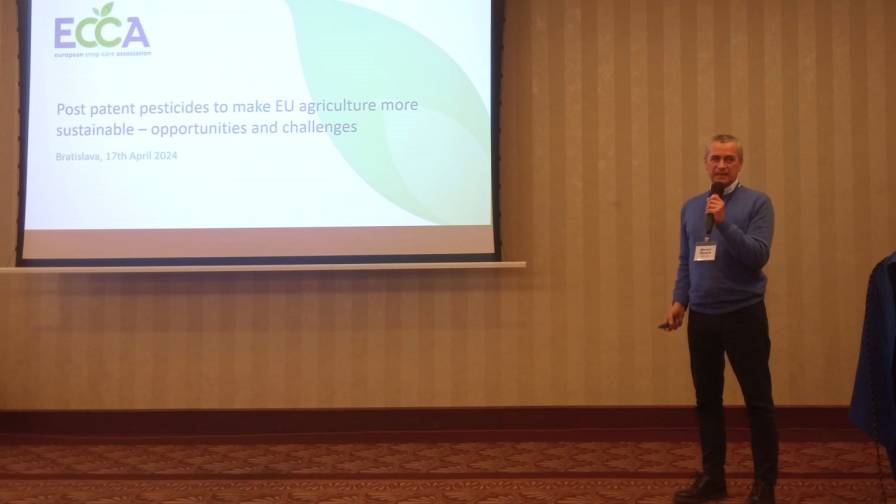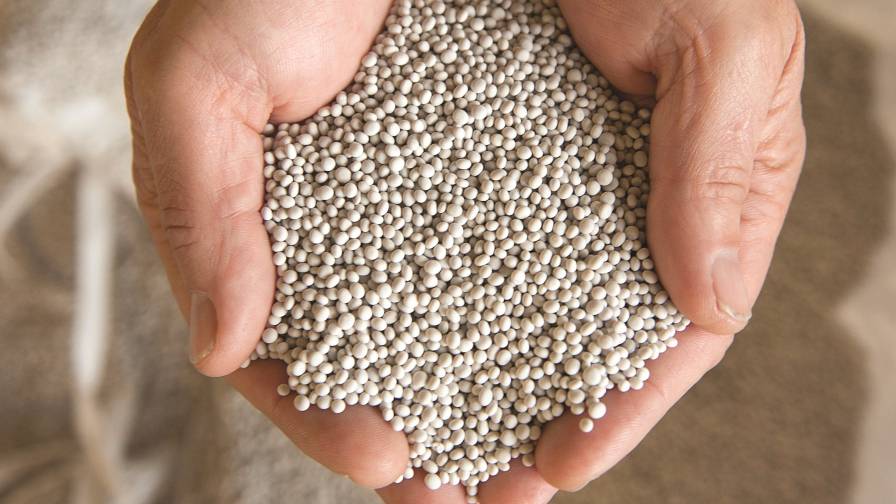High Insect, Weed Pressure Lifts Syngenta Sales to $4.7 Billion
Syngenta said its first-quarter sales rose 2% to $4.7 billion, driven by higher insect and weed pressure across Latin America, Europe and the United States.
Crop protection sales increased 4% to $3.2 billion, while seed sales fell 2% to $1.3 billion.
The Basel, Switzerland-based company said 10% growth in Europe, Africa and the Middle East was boosted primarily by crop protection, as Europe experienced an early start to the season with high weed, disease and insect pressure. Growth continued in the CIS despite political instability, with price increases partly offsetting local currency depreciation, it said.
The long North American winter delayed the start to the U.S. season across the Corn Belt, but sales of selective herbicides rose 6% nonetheless. Drought in California reduced demand for insecticides and fungicides, Syngenta said. It noted good growth in Canada on its Vibrance seedcare line and higher canola and sugar beet seed sales.
Growth in Latin America picked up pace from the preceding quarter despite dry conditions in Brazil and Argentina, as the spread of glyphosate-resistant weeds boosted demand, Syngenta said. It also said that high caterpillar pressure contributed to a “significant increase” in insecticide sales and in Venezuela, business resumed following resolution of a payment delay. Sales of its Elatus fungicide for soybean rust “progressed well” in Paraguay and Bolivia. It announced the Brazilian registration of that product in late February.
The company also highlighted double-digit fungicide growth in Latin America on increased use on cotton and expanding sales of its Durivo insecticide. In addition, a planned reduction in glyphosate volumes was “more than offset” by robust growth of its Gramoxone non-selective herbicide.
In Asia Pacific, growth was strong across both developed and emerging markets, Syngenta said. “In Australasia, herbicide sales in particular benefited from distributor support for our early season offers and from rainfall in March. In China, sales of Amistar technology doubled with expansion on rice and vegetables; South Asia saw strong demand for both crop protection and seeds in rice,” the company added.
Looking ahead, Chief Executive Mike Mack warned that the depreciation of a number of emerging market currencies in the first quarter will hurt its full-year EBITDA by around $100 million, instead of its earlier forecast of $50 million.
“For the full year we maintain our sales growth expectation for the integrated business of 6% at constant exchange rates. As stated in February, lower seeds costs in 2014 will result in gross margin improvement. Research and development spend will increase and will be at the upper end of the targeted 9% to 10% of sales range,” Mack said in a statement.






